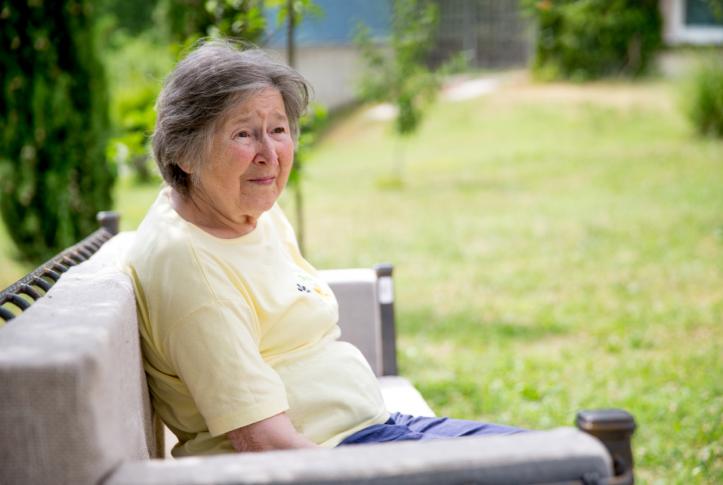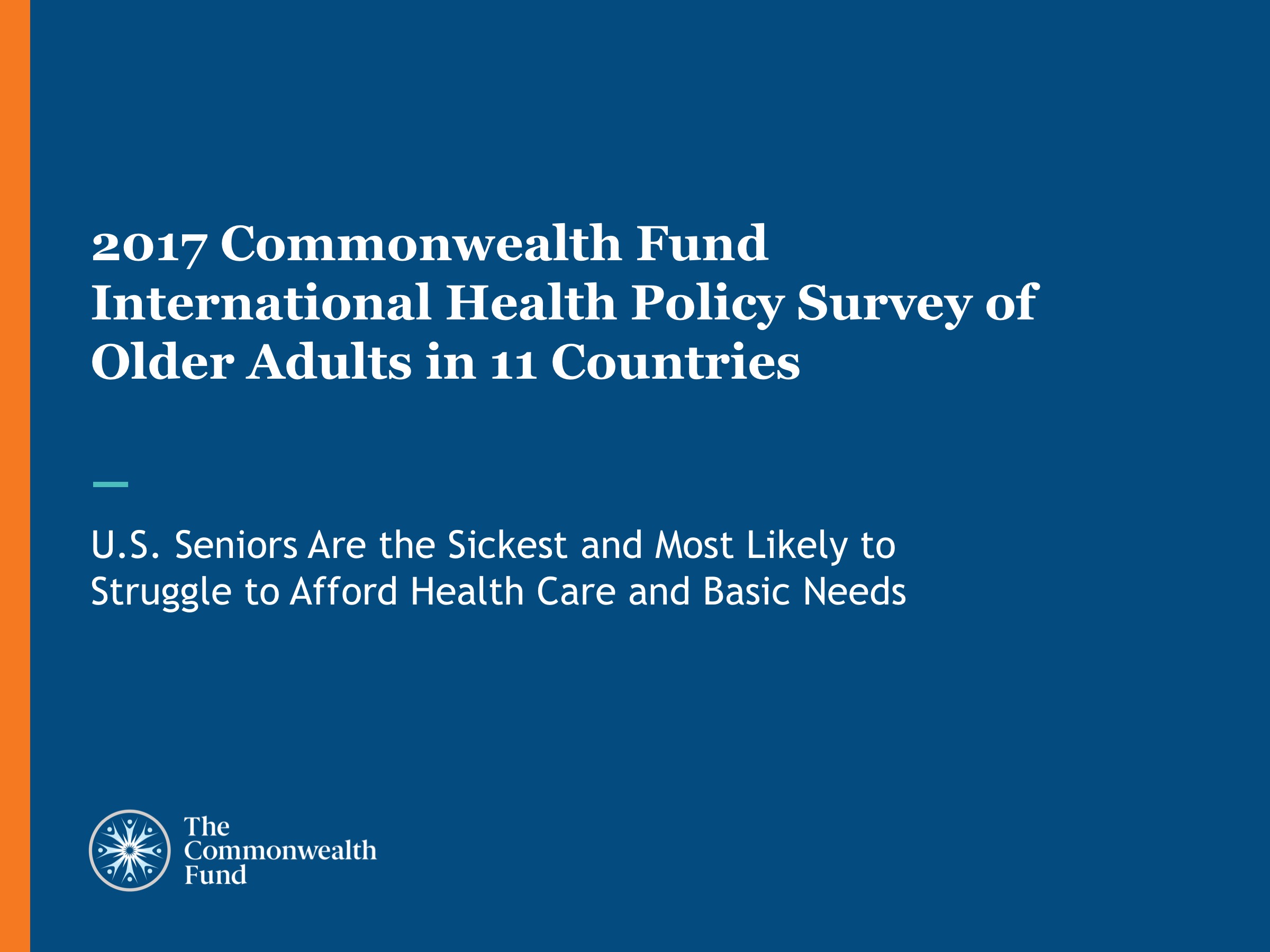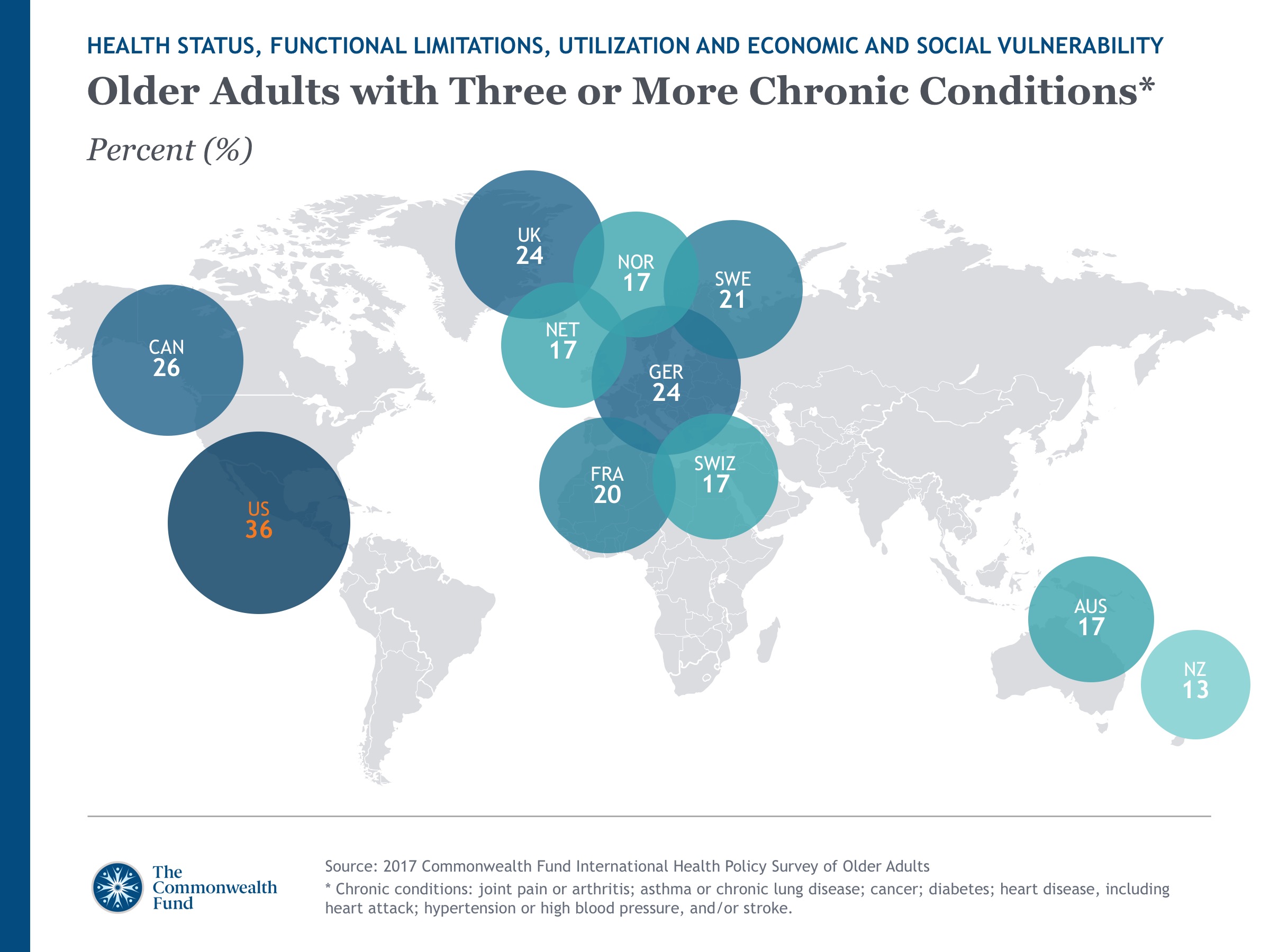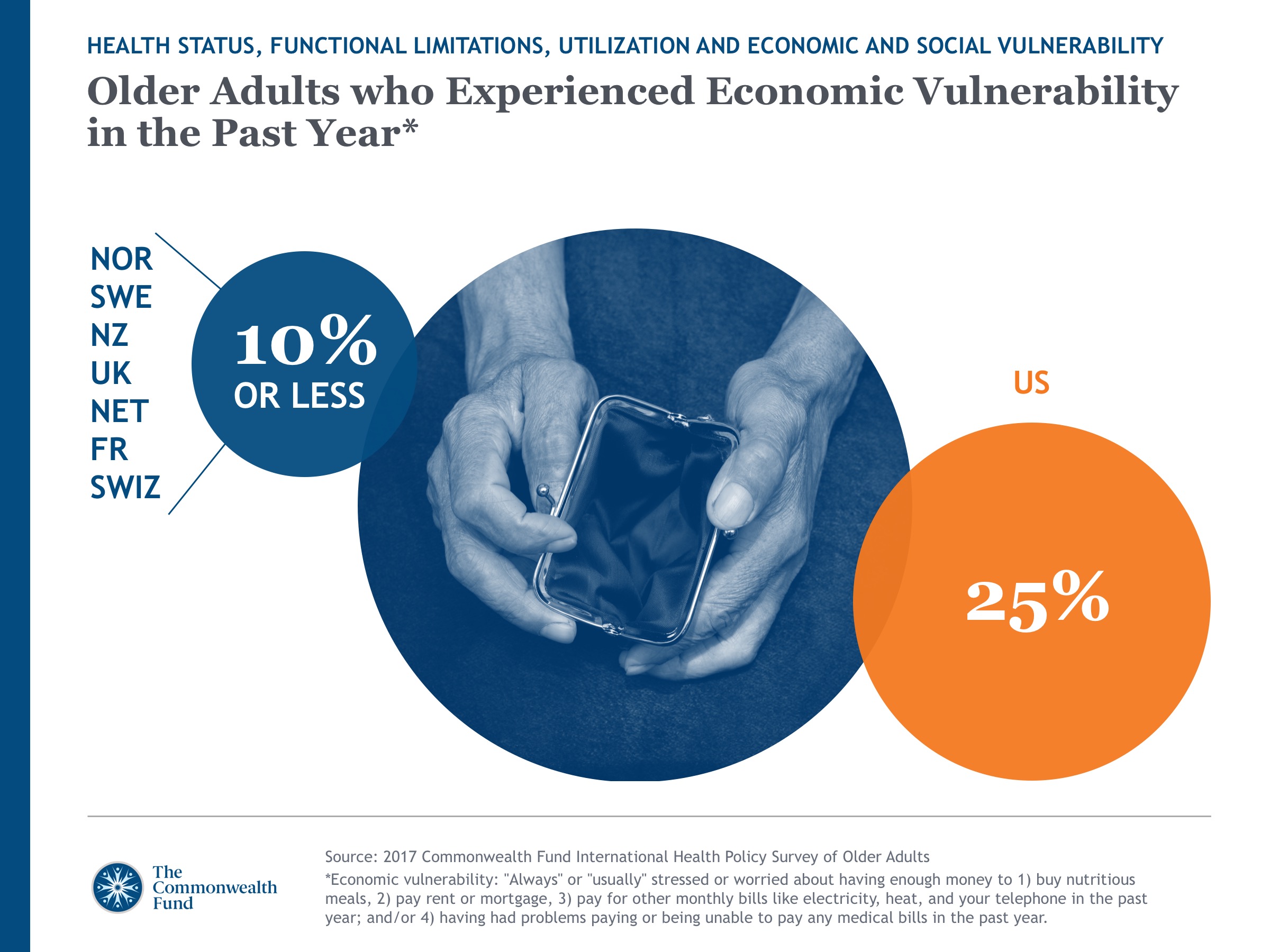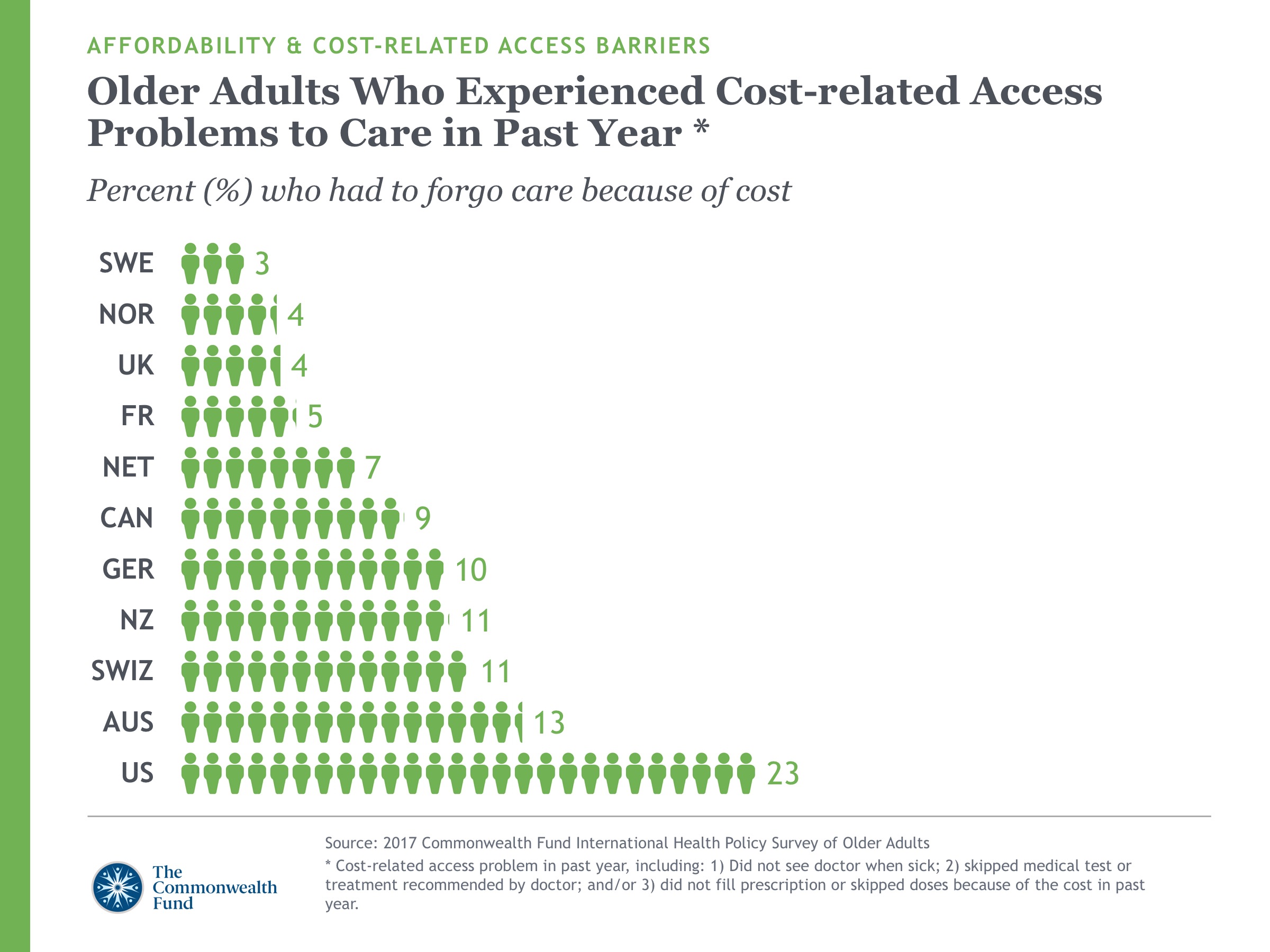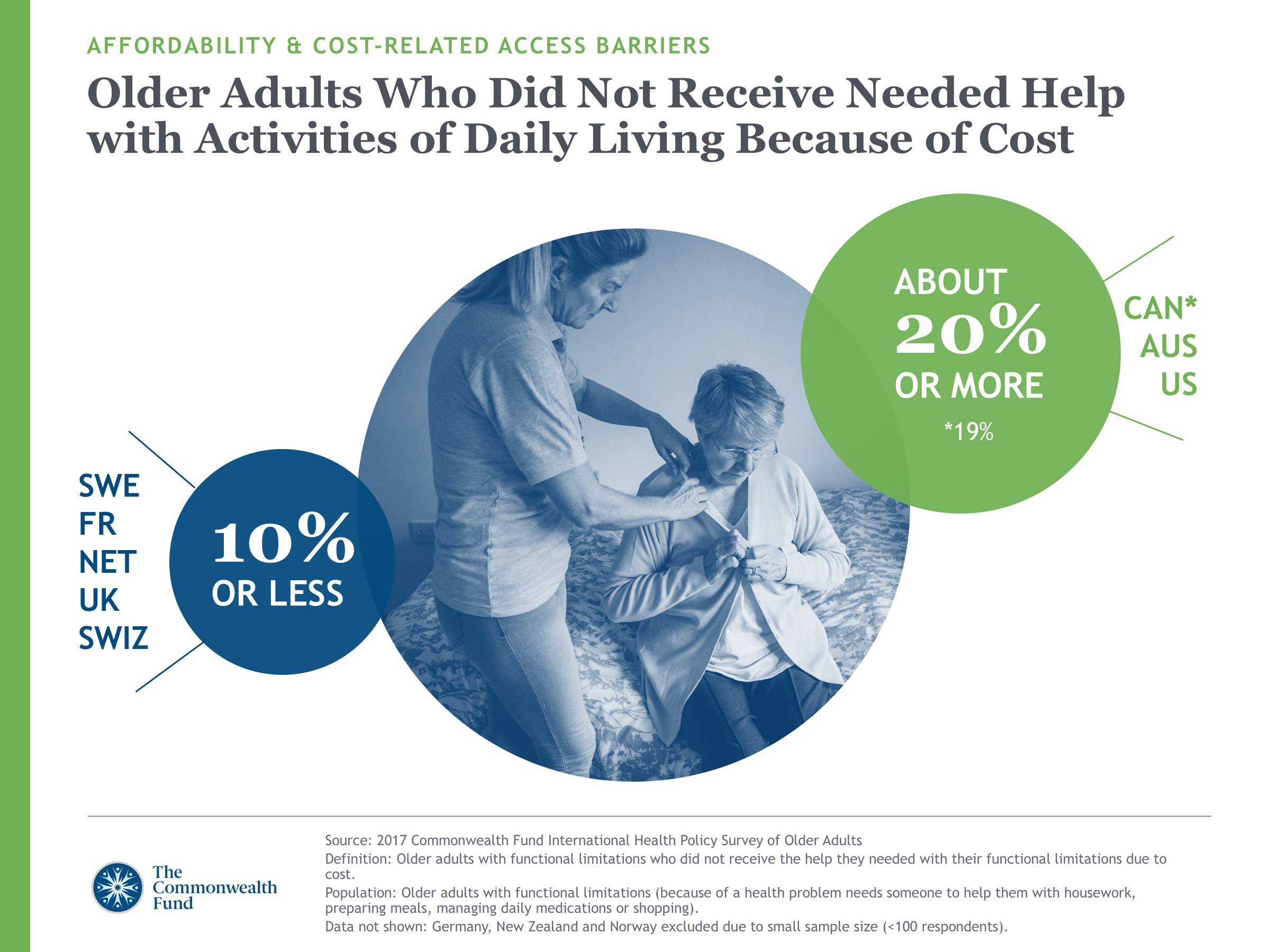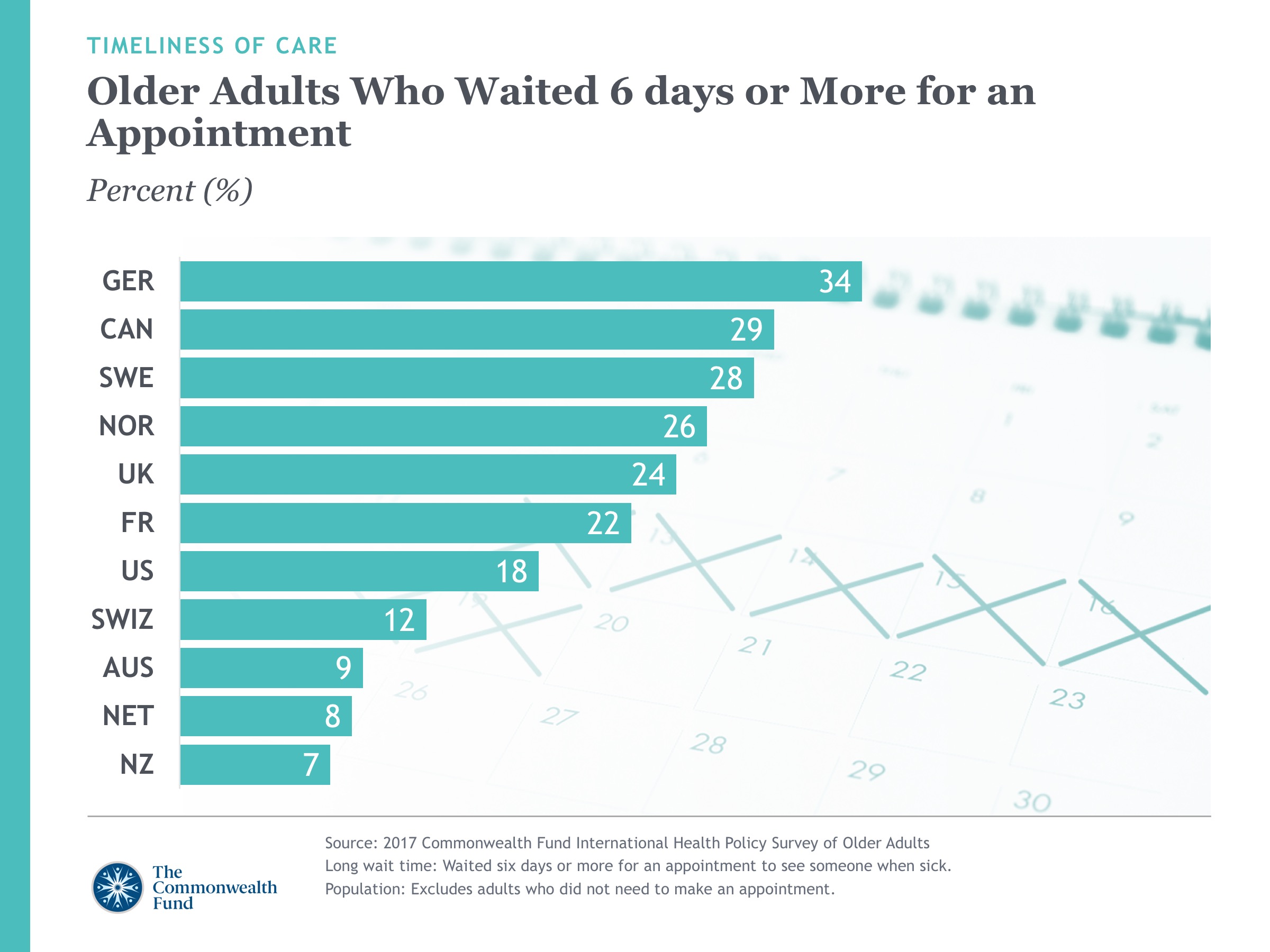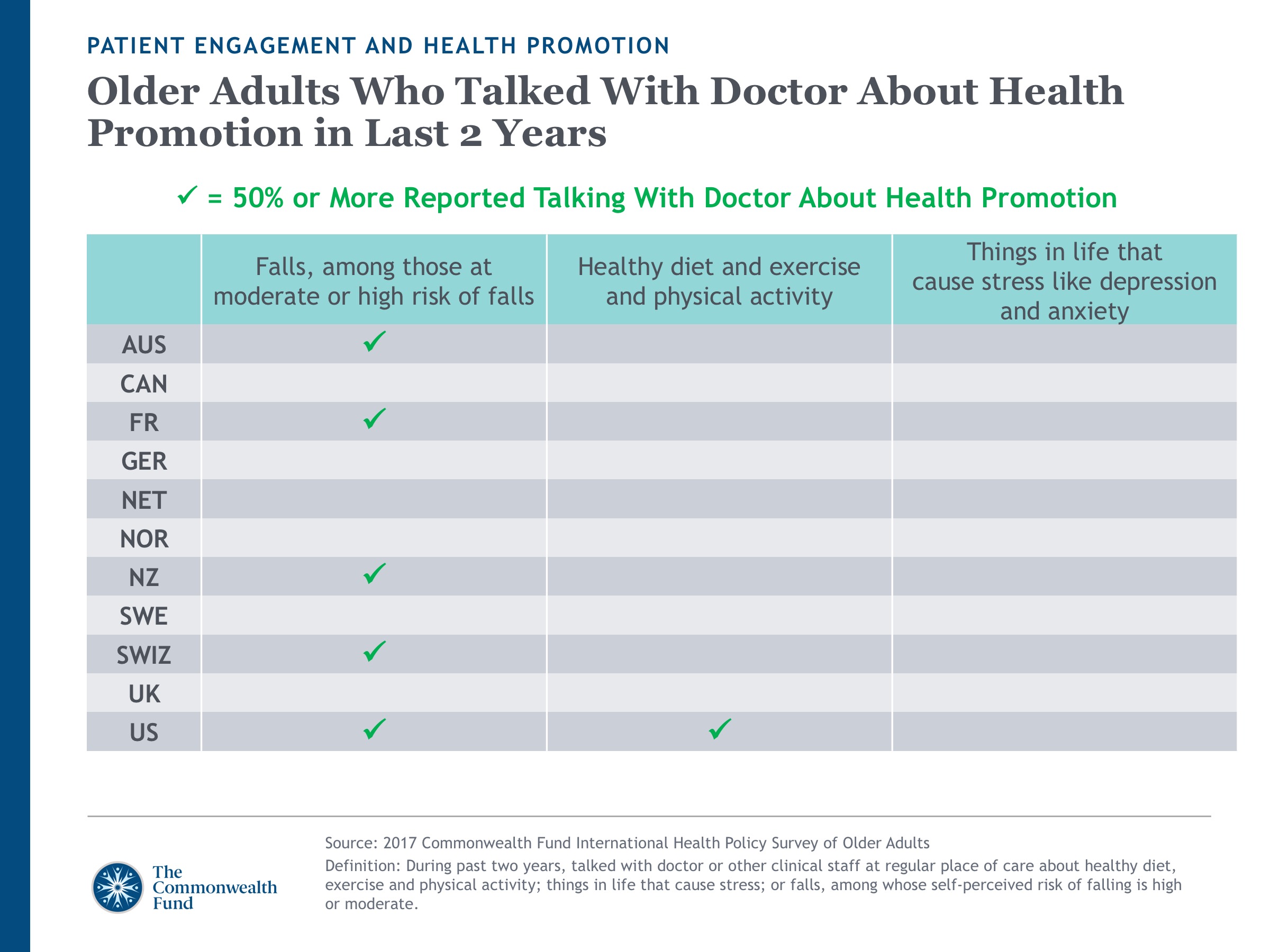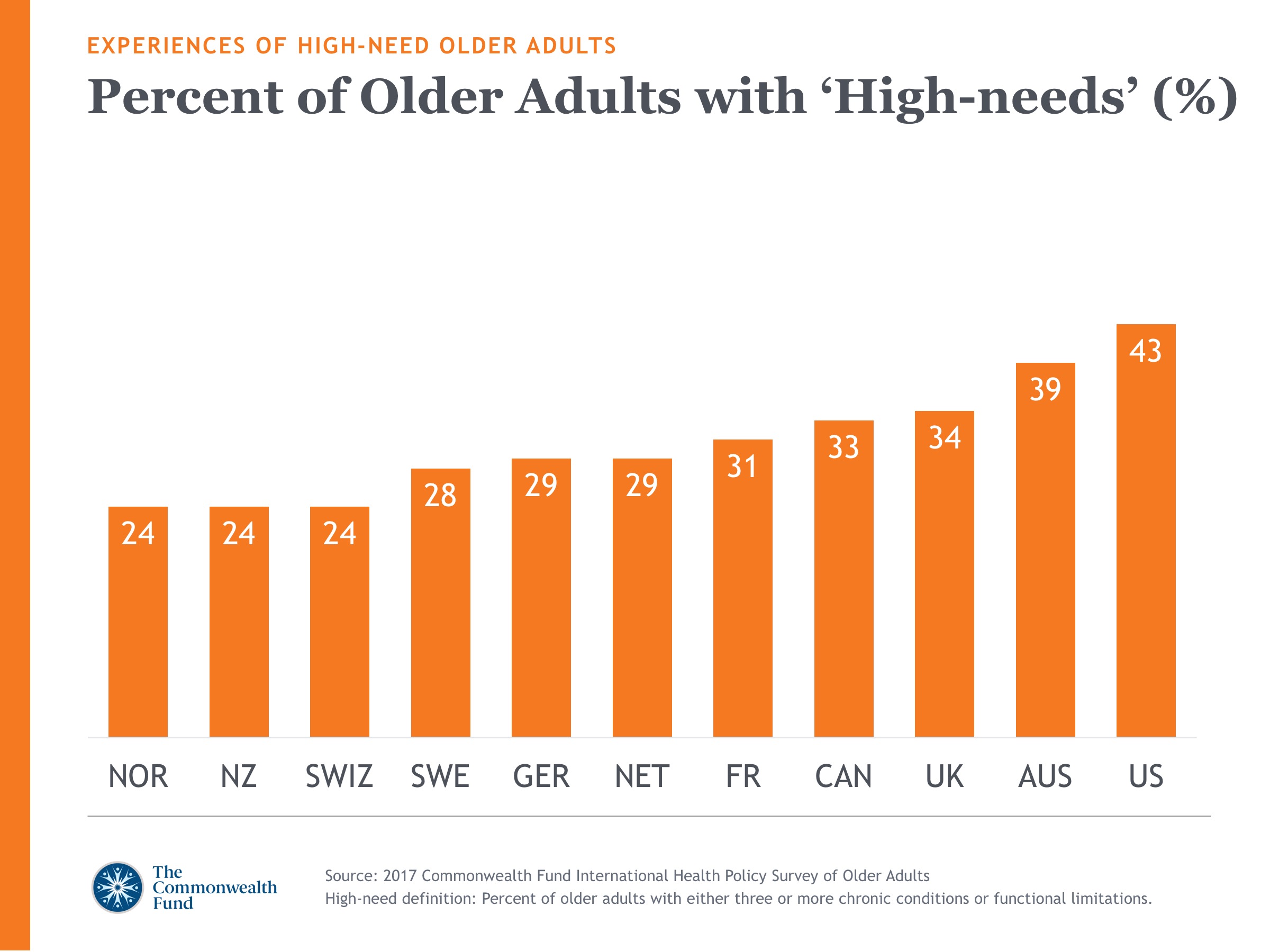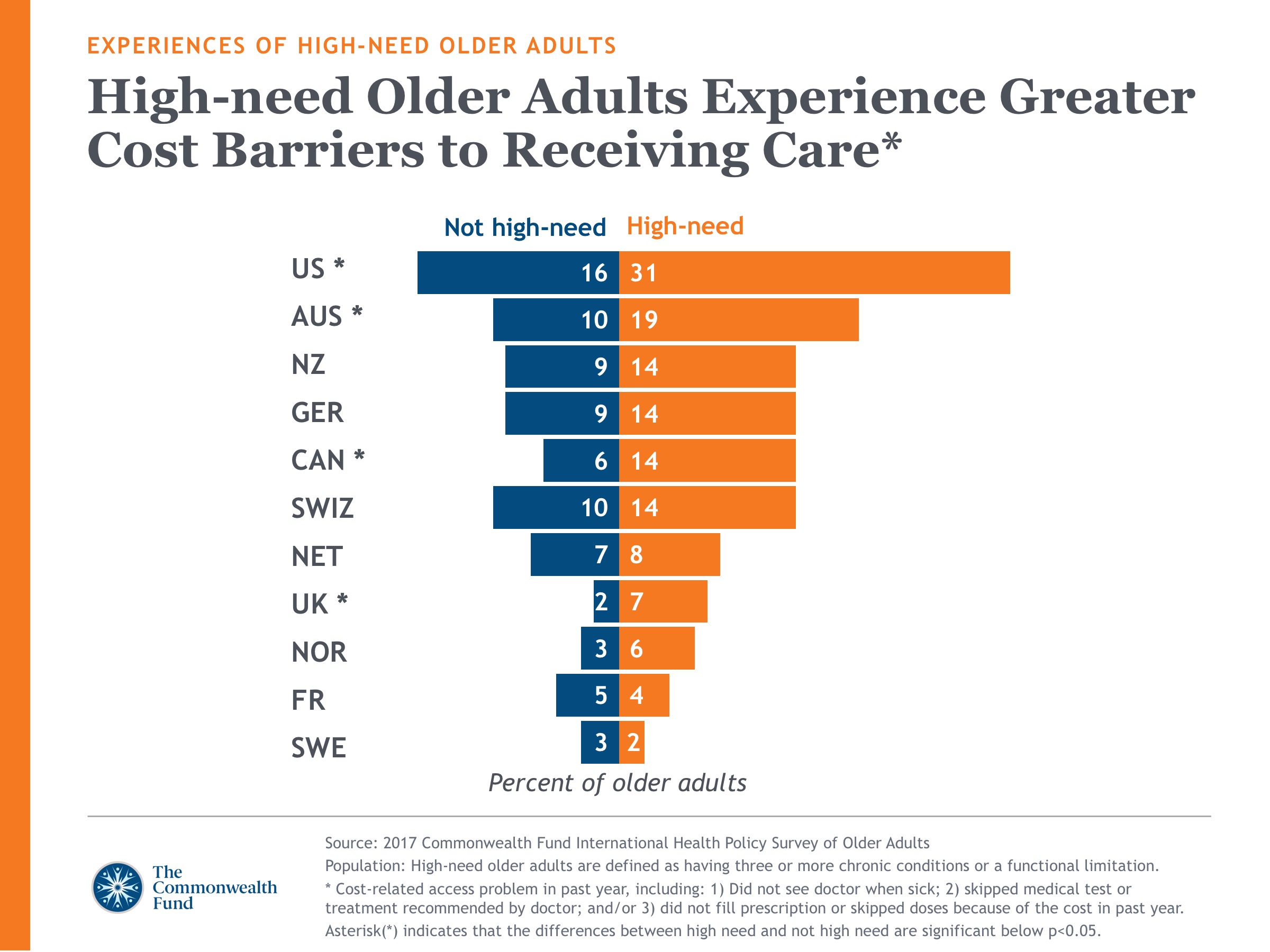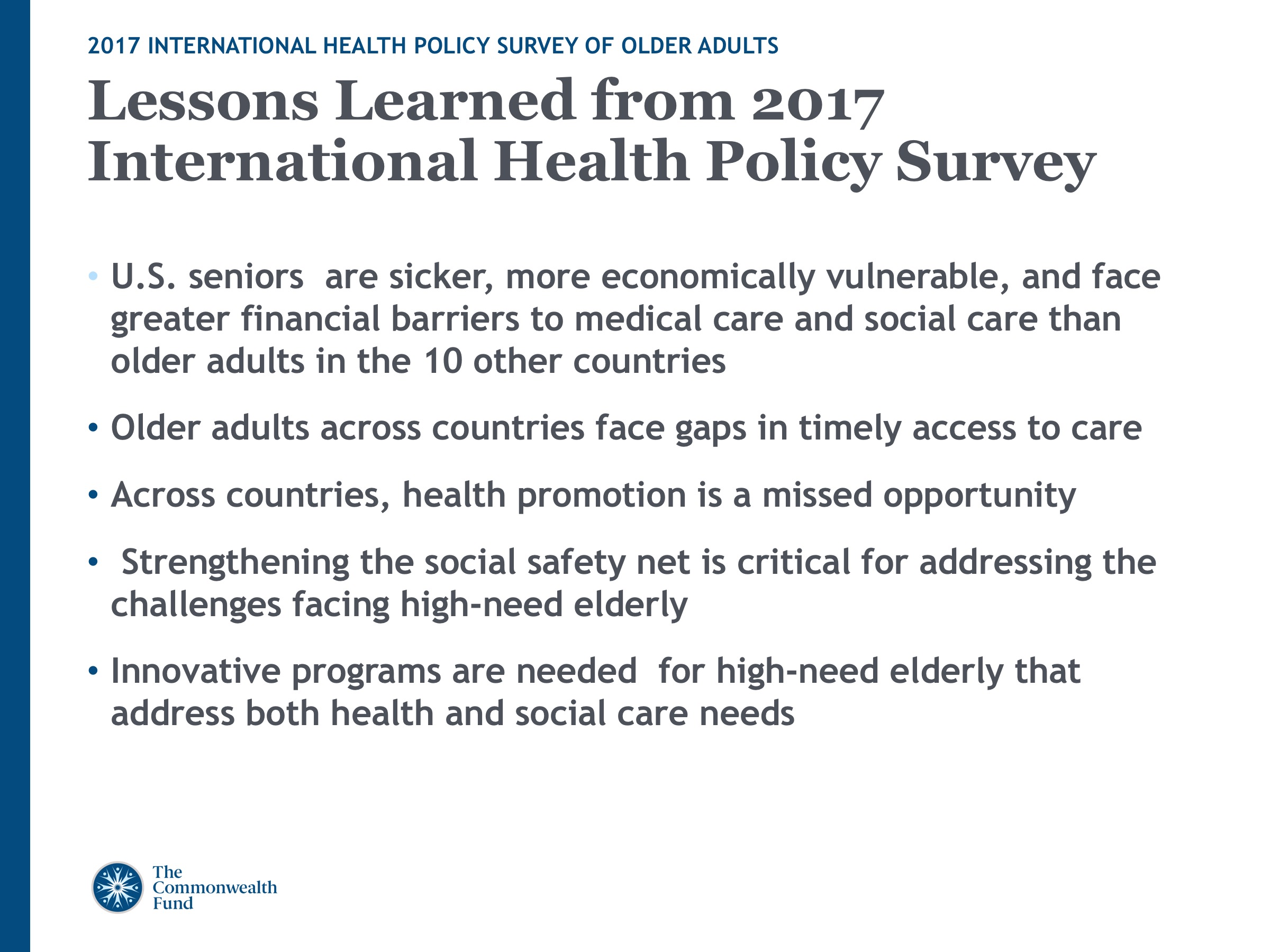Synopsis
An international survey of older adults finds that seniors in the United States are sicker than their counterparts in 10 other high-income countries and face greater financial barriers to health care, despite the universal coverage that Medicare provides. Across all the countries, few elderly adults discuss mental health concerns with their primary care providers. Moreover, nearly a quarter are considered “high need” — meaning they have three or more chronic conditions or require help with basic tasks of daily living.
The Issue
Aging populations present challenges to health care systems around the world. Writing in Health Affairs, the Commonwealth Fund’s Robin Osborn and colleagues report findings from the 2017 Commonwealth Fund International Health Policy Survey of Older Adults — the 20th in a series. The survey focuses on the challenges that adults 65 and older face in 11 countries: Australia, Canada, France, Germany, the Netherlands, New Zealand, Norway, Sweden, Switzerland, the United Kingdom, and the United States.
Key Findings
- Across the 11 countries, at least one of eight older adults reported having three or more chronic conditions, with rates ranging from a high of 36 percent in the U.S. to a low of 13 percent in New Zealand. At least 10 percent of older adults also reported having a functional limitation, like needing help with shopping or managing medications.
- A disproportionate share of U.S. elderly face economic challenges. One-quarter reported they often worry about having enough money to buy nutritious meals or pay for necessities like housing. Rates of economic vulnerability are lowest in Norway (3%) and Sweden (4%).
- Despite near-universal coverage through Medicare, U.S. seniors stand out for the financial barriers they experience in getting care. Nearly one-quarter (23%) of older adults in the U.S. said that, in the past year, they had not visited a doctor when sick, had skipped a recommended test or treatment, had not filled a prescription, or had skipped medication doses because of the cost. Five percent or fewer of respondents in France, Norway, Sweden, and the U.K. reported these cost barriers.
- The U.S. and Switzerland are both outliers on out-of-pocket expenses, with nearly one of four U.S. respondents (22%) and nearly one of three Swiss respondents (31%) reporting they had spent $2,000 or more for medical care in the past year. In all other countries, fewer than 10 percent of older adults spent that much.
- Few older adults in any of the countries surveyed reported discussing with their clinicians feelings of stress or anxiety, even though asking such questions can help flag mental health concerns. Rates ranged from 32 percent in Australia and 30 percent in France to 11 percent in Norway and 9 percent in Sweden.
- Across all 11 countries, at least one of four older adults are categorized as “high need” — meaning they have multiple chronic conditions or trouble performing activities of daily living, like cooking or shopping. The U.S. and Australia have significantly higher proportions of high-need elderly adults (43% and 39%, respectively).
- High-need older adults in the U.S. struggle with costs. Nearly one-third (31%) skip care because of costs, compared to only 2 percent in Sweden.
The Big Picture
The survey results highlight the importance of insurance benefit design. In the U.S., Medicare provides universal health coverage to adults 65 and older, but premium contributions and cost-sharing continue to be a serious burden for many. Other health systems offer more protection. For instance, Canada, the Netherlands, and the U.K. have no deductibles or cost-sharing for primary care. In addition, the U.S. stands out for its disproportionately low government spending on social services — such as housing, nutrition, and community outreach — vis-à-vis health care. The authors say a compelling business case exists for aligning health and social care spending.
About The Study
With assistance from the survey research firm SSRS, the authors interviewed adults age 65 and older in Australia, Canada, France, Germany, the Netherlands, New Zealand, Norway, Sweden, Switzerland, the U.K., and the U.S. Interviews were conducted by phone (and also online in Switzerland) between March and June 2017.
The Bottom Line
Despite Medicare coverage, older adults in the United States are sicker than those in other countries and face more financial barriers to health care.
